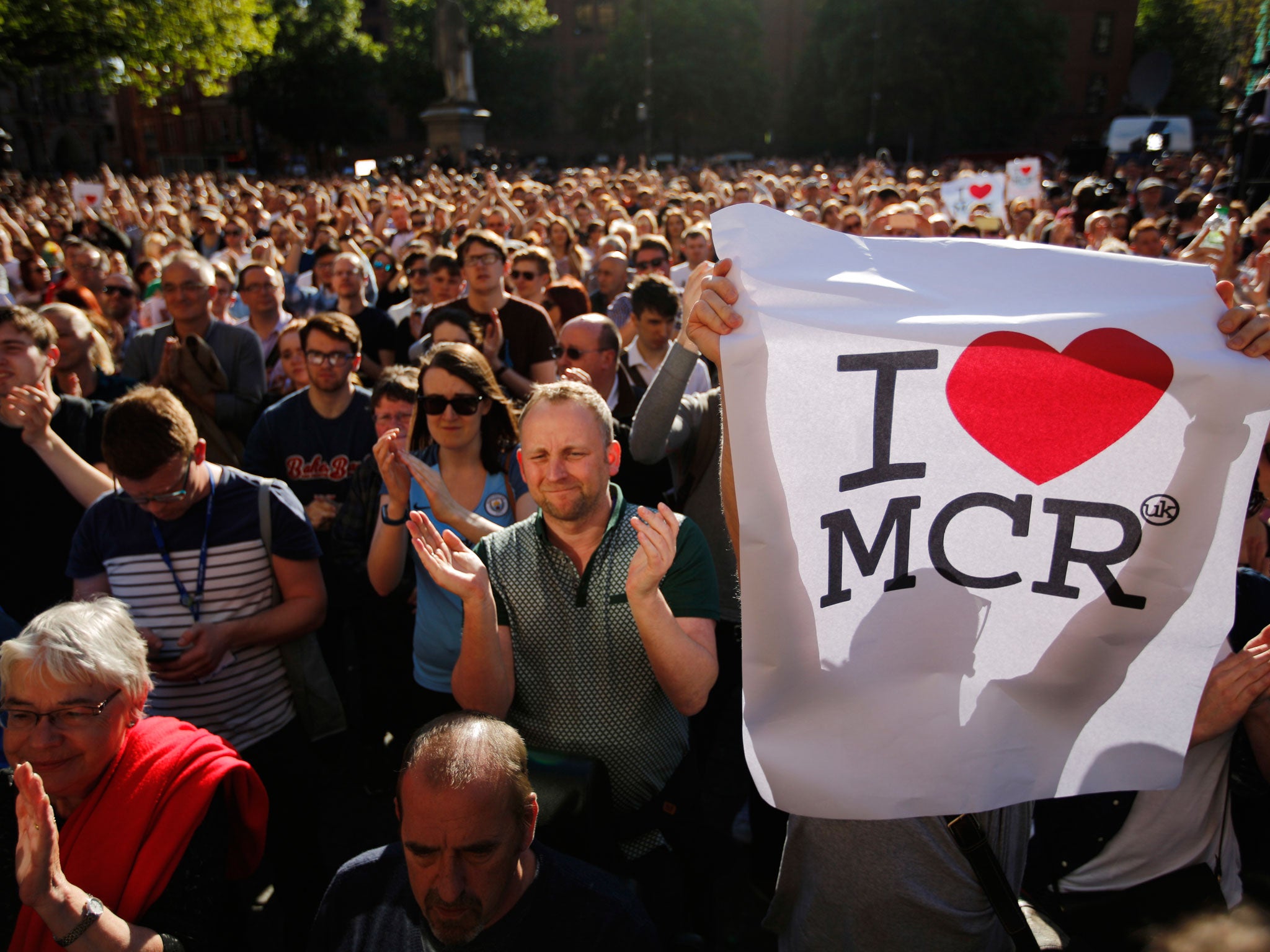A political truce during a general election campaign only hands power to the terrorists
If normal democratic activity can be suspended or disrupted via a bomb, that simply offers an incentive to those who seek to interfere with our way of life


I can understand why, when there’s a murderous terrorist outrage, politicians decide to cease campaigning and opt for a period of reflection and truce. After the assassination of Labour MP Jo Cox it happened; after the Westminster attack we saw the same; and now, again, after the Manchester bombing.
It seems a matter of good taste, of putting aside petty squabbles and silly insults at a time when the nation wants to focus on real human tragedy. Many parliamentary candidates, in a quite natural way, have no wish to argue about the economy or pensions when human lives have been taken in such a cruel fashion. It seems like poor taste when children have died.
And yet, is this not in fact another example of the terrorist having “won”. That statement, in itself, a bit of a cliche, I appreciate. But the point is that, as in France recently, if terrorists know that normal democratic activity can be suspended or disrupted via a bomb, that simply offers them an incentive to go about precisely that kind of disruption at election time.
Imagine if they targeted polling stations? What could be better than putting people off voting?
To put it at its most difficult: if the Manchester attack had occurred on the evening of 7 or 8 June this year, would we postpone our democratic election?
Or if, say, we were facing a very close election during which both leading parties were relying on those last few days of vital campaigning, but then there was another atrocity, would we just freeze the campaign? And again, perhaps, postpone the election?
If so, how long for? A day, a week, a month? Are we happy for an act of terror to change the way we are governed? That is, surely, not right.
It is perfectly possible to have a normal political debate about the future of the NHS, for example, while also feeling and expressing both sorrow and anger about what happened at Manchester Arena on Monday evening. Some ministers will, rightly, be distracted by their day jobs around national security at this time, but the major work of debating and campaigning could carry on, albeit sensitively.
Indeed, if the parties’ “truce” only extends to national and media activities and not to local “door knocking”, then that is hardly rational or consistent.
After the IRA murdered Margaret Thatcher’s minister and friend, Ian Gow, in 1990 – the last political assassination in Britain before the murder of Jo Cox last year – there was talk of the opposition parties not standing in the by-election that followed as a gesture of defiance and a mark of respect. In that case, again, the terrorists sought to change the course of politics, but the democratic imperative prevailed and normal politics resumed; the people in Gow's seat of Eastbourne were given a choice as to who they wished to represent them. (In the event the Conservatives lost the seat, but that was down to domestic issues. No-one, not even the IRA, thought that was their “win”).

In Batley and Spen last year, by contrast, the Conservatives, Ukip and Liberal Democrats did stand down, and the Labour candidate succeeded Jo Cox – but the election was still contested. Looking back, that by-election could have been fought conventionally with no gain to extremists.
The truth is that the politicians, the media and indeed the voters have a much-diminished appetite for party politics when a huge story such as the Manchester terror attack breaks. The parties have no need for a formal close-down of political activity in an environment that would be naturally and respectfully subdued. When people feel like moving on, looking again to the future and talking politics again, then they will do so. It is self-regulating and driven by the public.
We now end up with the unhappy sight of Ukip preparing to make maximum political advantage out of the outrage in a political vacuum by launching their manifesto on Thursday. It may not secure the party many votes, but it demonstrates how tricky an enforced “truce” can be in terms of the democratic process.
We have a right not to have our democratic election hijacked by a terrorist.
Join our commenting forum
Join thought-provoking conversations, follow other Independent readers and see their replies
Comments
Bookmark popover
Removed from bookmarks